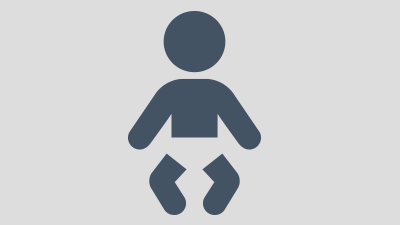Influenza (Flu) Vaccination

The CDC recommends that everyone six months of age and older get the flu vaccine every season. In addition to the flu vaccine for adults, teens, and children, there are flu vaccines approved for different groups:
- Pregnant women
- Older adults (65 years and older)
- Small children
- People with chronic conditions
The flu vaccine is especially important for people with chronic health conditions and those who have a high risk of developing complications from the flu. If you have questions about which vaccine is best for you, talk to your doctor or other healthcare professional.
Since infants younger than six months cannot be vaccinated against the flu, it’s crucial that the people around them get the flu shot for the baby’s health.
It cannot be said often enough—the flu shot does not cause flu illness.
Where Can I Get a Flu Vaccine?
Flu vaccines are offered in many doctor’s offices and clinics. Even if you don’t have a regular doctor or nurse, you can get a flu vaccine somewhere else like a health department, pharmacy, urgent care clinic, college health center, and even in some schools and workplaces.
To find a flu vaccine near you, please visit www.vaccines.gov/find-vaccines/
Alternatively, Texans can call 2-1-1 or visit 211Texas.org to find information on vaccine availability from local public health departments and other nearby non-profit organizations.
Who Should Get the Flu Shot?

Pregnant women
Older adults (65 years and older)
Small children (6 months to 5 years)
People with chronic health conditions
- This season’s flu vaccine is recommended for everyone 6 months of age or older.
- The vaccine is available in shot form for everyone (including babies as young as 6 months) with rare exceptions.
- The live attenuated influenza vaccine, commonly called the “nasal spray” vaccine and sold under the trade name FluMist, is once again on the list of recommended flu vaccines for the 2019-2020 U.S. influenza season.
- If you have questions about which vaccine is best for you, talk to your doctor or other healthcare professional.
- People with certain conditions—or who live with people with certain conditions—that put them at high risk of developing serious complications should they get the flu, are especially encouraged to get vaccinated, as are pregnant women.
- Because babies under 6 months of age cannot receive the vaccine, it is important that family members and others around the babies get vaccinated to protect the babies and themselves.
- There is no priority-group order for receiving the vaccine.
Why the Shot Is Important
The flu vaccine offers a range of important benefits including:
- Reducing the number of flu cases
- Reducing the amount of time missed at work and school
- Preventing flu-related hospitalizations and deaths
- Minimizing the effects of flu if contracted
Of course, the primary benefit of the seasonal flu shot is to help maintain your and your loved ones’ well-being. If you have questions about which vaccine is best for you, talk to your doctor or other healthcare professional.
Vaccine Resources
- Who Needs a Flu Vaccine & When*
- Selecting Viruses for the Seasonal Influenza Vaccine*
- Vaccine Information Statement (VIS): Inactivated Flu Vaccine (Injectable)*
- Prevent Seasonal Flu*
- Different Types of Flu Vaccines*
- People at Higher Risk of Flu Complications*
- People 65 Years and Older & Influenza*
- Pregnant Women and Influenza (Flu)*
- Key Facts About Influenza (Flu)*
- Misconceptions about Seasonal Flu and Flu Vaccines*
- ACIP Recommendations: Influenza (Flu) Vaccine | ACIP Recommendations*
- Influenza Vaccination Information for Health Care Workers*
- Influenza (Flu) Vaccine Safety*
*CDC.gov